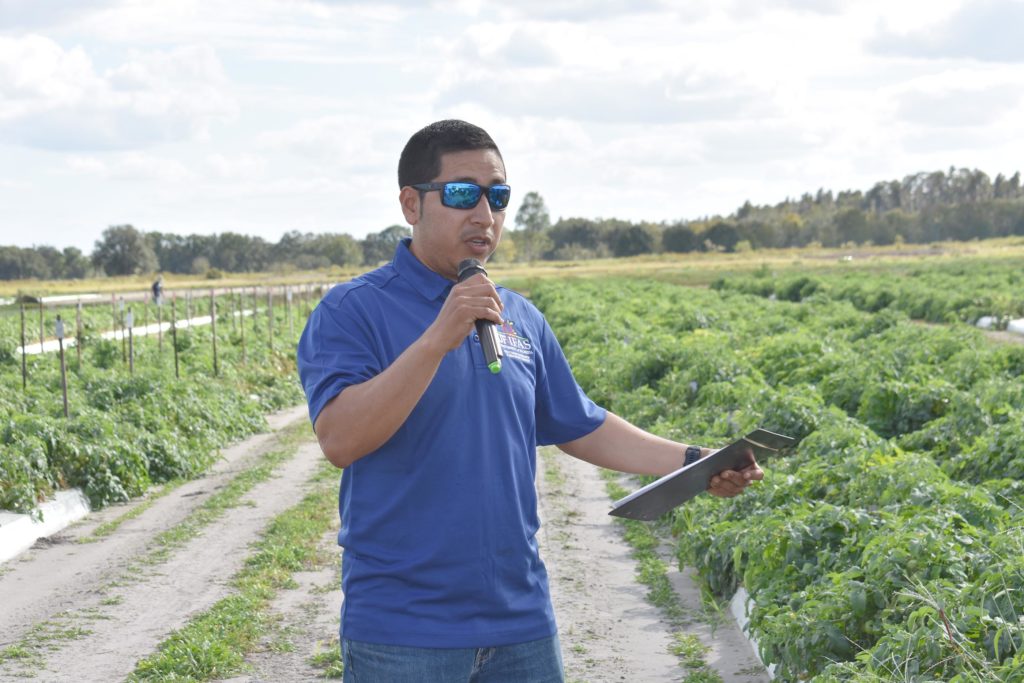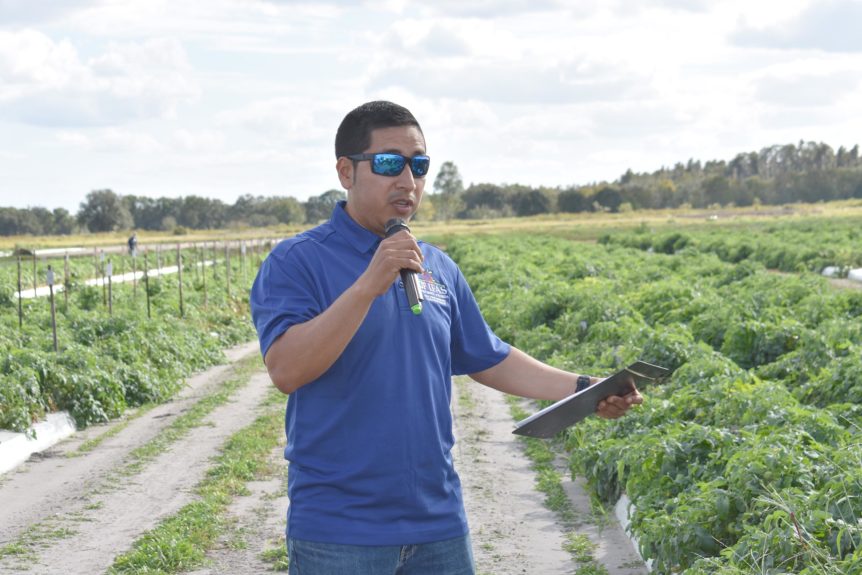By Clint Thompson
Sustainability in the tomato industry likely will rely on automation. It only makes sense for tomato breeding research at the University of Florida Institute of Food and Agricultural Sciences (UF/IFAS) to focus on developing varieties that can be harvested mechanically.

Edgar Sierra, a post-doctoral researcher at the UF/IFAS Gulf Coast Research and Education Center, discussed tomato breeding during the farm tour at the Florida Ag Expo in Wimauma, Florida, this past November.
Labor a Concern for Growers
“One of the big ones in the last few years is trying to breed for plants that are suitable for mechanical harvests. Labor is short in Florida. To grow tomatoes in Florida, it takes a lot of labor. You have to tie the plants. You have to go harvest them three times. If you can reduce the amount of people that are working on the plant, that’s going to make a cheaper cost of production,” Sierra said. “All of this (research) is for mechanical harvests. We have a few other experiments that have traditionally grown tomatoes. Those are just for traditional harvesting or practices in Florida. These are just for developing hybrids that can be used for mechanical harvesting.”
Mechanical harvesting is a top quality being researched because of the lack of a domestic workforce and the high expense it requires to participate in the H-2A program. If growers can reduce labor demands because the crop can be mechanically harvested, it would reduce their input costs.
There are various qualities that researchers are breeding for. One is to have a compact plant that does not to grow like a big bush that spreads all over. Sierra hopes to also find a variety that can be picked just one time through the field.
“Instead of harvesting three times, we want the machine to come pull the plant, shake the tomatoes just one time and get maximum yield,” Sierra said. “We want a concentrated set.”
Sierra said there are not mechanical harvesters available just yet that can pick a tomato without bruising it; an important detail that can turn off consumers in the fresh market industry.










